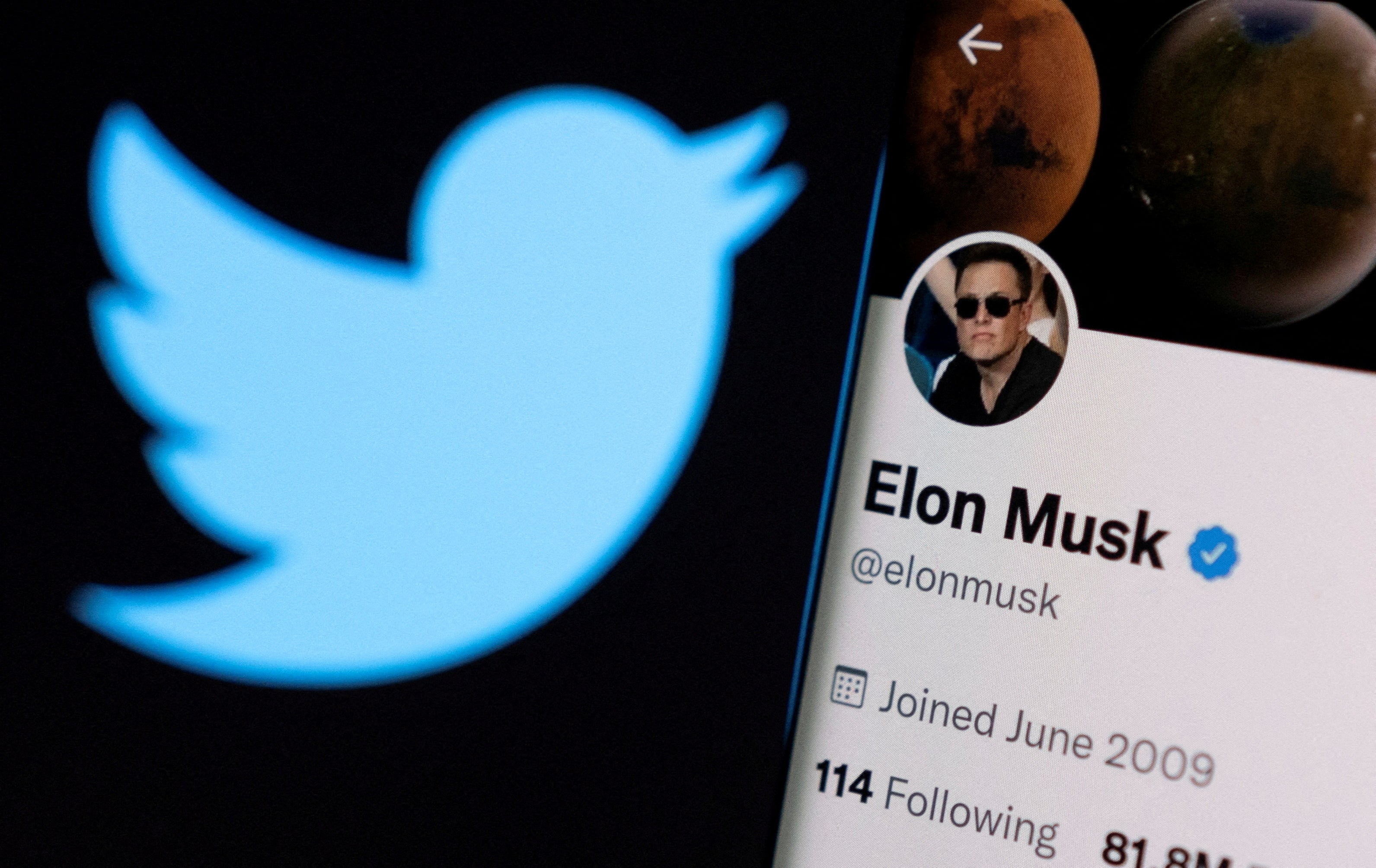What will Elon Musk’s takeover of Twitter mean for free speech?
Many Silicon Valley insiders born and bred upon techno-utopian free speech ideals have struggled with translating these principles into workable online rules


Your support helps us to tell the story
From reproductive rights to climate change to Big Tech, The Independent is on the ground when the story is developing. Whether it's investigating the financials of Elon Musk's pro-Trump PAC or producing our latest documentary, 'The A Word', which shines a light on the American women fighting for reproductive rights, we know how important it is to parse out the facts from the messaging.
At such a critical moment in US history, we need reporters on the ground. Your donation allows us to keep sending journalists to speak to both sides of the story.
The Independent is trusted by Americans across the entire political spectrum. And unlike many other quality news outlets, we choose not to lock Americans out of our reporting and analysis with paywalls. We believe quality journalism should be available to everyone, paid for by those who can afford it.
Your support makes all the difference.In 2017, a group of tech executives prostrated themselves before hostile British MPs who demanded tougher action on hate speech. Twitter´s representative announced that the platform was abandoning its “John Stuart Mill-style philosophy“, declaring it was "no longer possible to stand up for all speech”.
Yet, Elon Musk´s recent acquisition of Twitter for $44bn is premised on a return to the principles of Mill who wrote that: “Strange it is, that men should admit the validity of the arguments for free discussion, but object to their being ‘pushed to an extreme’; not seeing that unless the reasons are good for an extreme case, they are not good for any case.” And, like Musk, Mill believed that protection against private threats to free speech is as important as protection against the “tyranny of the magistrate”.
Although no one knows how Musk will implement Millian principles in practice, the prospect of less rigorous content moderation on Twitter has caused important debates about the potential consequences. This includes an outbreak of “elite panic” among many pundits and politicians, whose livelihoods depend on exercising free speech.
US Senator Elizabeth Warren called the deal “dangerous for our democracy”, others view the takeover as a manifestation of White Power that would end #BlackTwitter. On the other hand, some uncritically hail Musk as the saviour of free speech from Twitter´s alleged digital authoritarianism.
In truth, there are both reasons to be wary and hopeful about Muskian Twitter, as well as ways forward that protect speech and empower users.
In 1945, George Orwell warned against a centralised press “owned by wealthy men who have every motive to be dishonest on certain important topics”. Twitter is the platform of choice for media outlets, journalists, pundits and politicians, giving it an outsized influence on the public sphere. Accordingly, Orwell’s warning is still relevant in the digital age.
That Musk professes a faithful commitment to free speech is no guarantee that he will stay true to this ideal. In Areopagitica, John Milton railed against censorship, only to end up serving as a censor under Cromwell. Ever since, the history of free speech has been afflicted by “Milton’s Curse”, the selective and unprincipled defence of this freedom.
Will Musk also be tempted to curate his online persona and protect his business interests via Twitter, just as he has apparently sought to deflect or suppress negative news stories about Tesla? These dangers could be offset by Musk´s promise to increase transparency and he would be wise to erect “Chinese walls” between himself and the enforcement of content moderation once new principles are in place.
What about the dangers of hate speech and disinformation? Well, it’s important to have some perspective. In absolute numbers, one can find many examples of hatred and misinformation (especially when using broad and subjective definitions). But overall, the share of such speech has often been exaggerated by traditional media and politicians eager to rein in the digital disruptors of the old elitist public sphere.
This is cold comfort to vulnerable groups subjected to vile hatred, but it is also true that Twitter has been instrumental in giving voice to campaigns like Black Lives Matter, #MeToo and LGBT+ activists.
Inescapably, free speech comes with costs and harms. There are good arguments that Twitter has come to err on the side of restrictiveness, removing ever broader categories of hate and disinformation, sometimes inadvertently affecting the minorities the removals were supposed to protect, as well as suppressing genuinely newsworthy stories.
To keep up to speed with all the latest opinions and comment, sign up to our free weekly Voices Dispatches newsletter by clicking here
But it is also true that the few but bright lines that ought to delineate the legal limits of free speech very quickly become blurry in cyberspace. Many Silicon Valley insiders born and bred upon techno-utopian free speech ideals have struggled with translating these principles into workable online rules.
Global platforms have hundreds of millions of users in different countries with very different ideas about where to draw the line. Moreover, content moderation depends on scale and speed, which is incompatible with precision and thoughtfulness. Accordingly, mistakes and inconsistent enforcement is a feature not a bug. No doubt, Musk will also run into this problem. In fact, in a recent TED interview Musk seemed to acknowledge that his vision would not include total free speech absolutism.
One way forward could be to reduce centralised moderation by Twitter, while allowing users more control through so-called distributed content moderation. This would take much of the centralised decision making out of the hands of Twitter – and ultimately Elon Musk – and empower individuals to decide.
If, for instance, women or LGBT+ groups find specific types of lawful but awful content deeply offensive and offputting, they could avoid it by using filters developed by third parties without affecting the wider ecosystem of news, views and information that is central to Twitter.
Jacob Mchangama is the executive director of Justitia, a Copenhagen-based think tank focusing on human rights and author of ‘Free Speech: A Global History From Socrates to Social Media’
Join our commenting forum
Join thought-provoking conversations, follow other Independent readers and see their replies
Comments